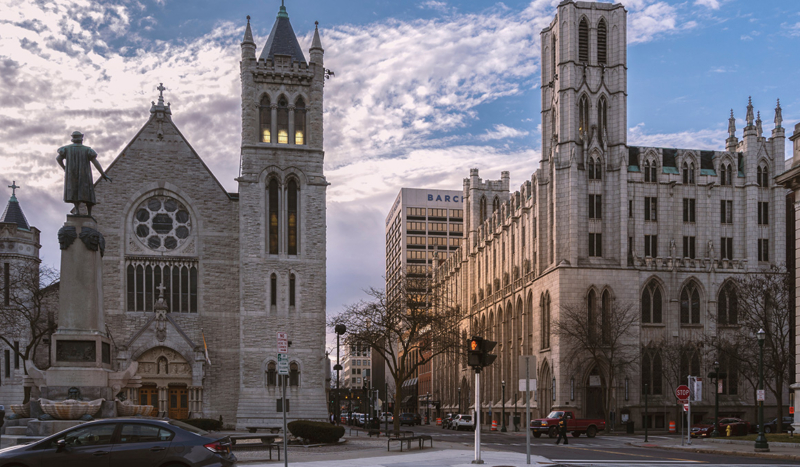
Mahmoud Suhail, Shutterstock.com
CV NEWS FEED // The Diocese of Syracuse’s bankruptcy case has been further postponed as lawyers revise central documents following a recent U.S. Supreme Court ruling involving Purdue Pharma’s bankruptcy reorganization.
Under their original settlement, the Sackler family, which controlled Purdue Pharma, had agreed to pay $6 billion to address opioid-related claims, but only in exchange for full immunity from future legal liabilities, according to NBC news.
However, in a 5-4 decision in June, the Supreme Court ruled that the bankruptcy court lacked the authority to release Sackler family members from legal claims made by opioid victims.
According to news outlet Syracuse.com, the Court ruled that such settlements may violate federal bankruptcy law without proper consent from affected parties.
This ruling impacted the Syracuse diocese’s plan to distribute $100 million to sexual abuse survivors in exchange for waiving further legal claims.
The plan had proposed that the Diocese contribute half of this fund, with the rest covered by parishes, schools, missions, and Catholic Charities, and, potentially, additional funds from insurance companies.
Judge Wendy Kinsella, who is overseeing the Diocese’s case, has suspended all deadlines and will re-evaluate the case during a hearing scheduled for Sept. 18, according to Syracuse.com.
Before the delay, the four-year case seemed close to resolution. Creditor voting on the proposed plan had already occurred, with a hearing on final approval scheduled for the fall. Out of 305 survivors who voted, all but two voted in support of the plan. An additional nine voters opted not to cast a ballot.
Lead lawyer for the Diocese’s creditors Robert Kugler stated that they are “acutely aware of how long this case has been pending and are focused on finality for survivors.”
According to Syracuse.com, diocese lawyers initially believed the plan did not require significant changes. However, they now plan to submit “surgical” modifications before the September hearing.
Stephen Donato, the Diocese’s lead bankruptcy lawyer, stressed the need for careful consideration as they move forward with the revised plan.
“These are cutting-edge issues,” said Donato. “We want to make sure we get it right.”

